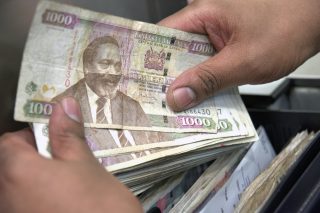Kenya’s markets regulator plans to relax free float requirements for companies seeking to list on the Nairobi Securities Exchange (NSE) as it aims to attract new companies and improve liquidity on the struggling bourse.
The Nairobi bourse is currently grappling with plunging trade volumes amid a dearth of new investors and listings. Reports show that it has not pulled an initial public offering (IPO) from a corporate entity for over a decade.
Over the past two months, the Exchange has seen seven companies, including Kenya Airways, Kenya Power, CIC Insurance, Eaagards, NSE plc, and BOC, declare profit warnings with their earnings for 2019 projected to decline by more than 25 percent.
There is also the problem of low liquidity levels on the bourse, which is dominated by five major companies that make up over 70 percent of the market capitalization. These are Safaricom, Equity Bank, East African Breweries Ltd, KCB Bank and Co-operative Bank of Kenya.
In an attempt to address the decline, the Capital Markets Authority (CMA) has proposed amendments to the Capital Markets (Securities) (Public Offers Listing and Disclosures) Regulations 2002, which are expected to be incorporated in next year’s (2019/2020) budget.
The reforms include lowering the volume of free float or tradeable shares for large-sized companies that want to list on the NSE from 25 percent to 5 percent, as an incentive to float shares to the public.
The current floating requirement mandates firms seeking to list on the Main Investment Market Segment to have 25 percent of their shares available for trading. Meanwhile, those looking to list on the Growth Enterprise Market Segment (GEMS) must have 15 percent of their shares available for trading.
According to Luke Ombara, CMA’s director for regulatory policy and strategy, the high free float requirement has prevented several big companies from listing on the market.
“Many companies have shied away because of our minimum free float requirement. The truth is that they don’t want a 25 percent free float but you can see that even one percent will create a substantial amount of new shares,” Ombara told The EastAfrican.
It is ‘logical’ to accept 5 percent with new listings and more shares available, than retain 25 percent with no new listings, the director explained further. But the new free float rate will only apply to newly-listed firms.
“The law will have to be crafted carefully to clarify that and because this could be interpreted as applying different standards, the new firms may be required to comply with the current floating rate within a certain period,” Ombara added.
CMA has contracted a group of both local and foreign consultants to help revise the entire Public Offers, Listing and Disclosure regulations.
With the new law, firms that want to list on the GEMs only have to reserve 5 percent of their shares for trading but upgraded to 15 percent within four years, and be held by at least 25 shareholders within two years of listing from the prior three months.
The reforms also lower the minimum number of investors for companies seeking to sell shares to the public from the current 1,000 to 300, and a reduction in the paid-up capital from $500,000 (Ksh50 million) to a level yet to be decided.
“We are basically removing impediments to investments and we are starting with obsolete clauses,” said Ombara. “We are targeting to attract new companies while retaining the existing listed companies by making disclosures less stringent and less costly.”








